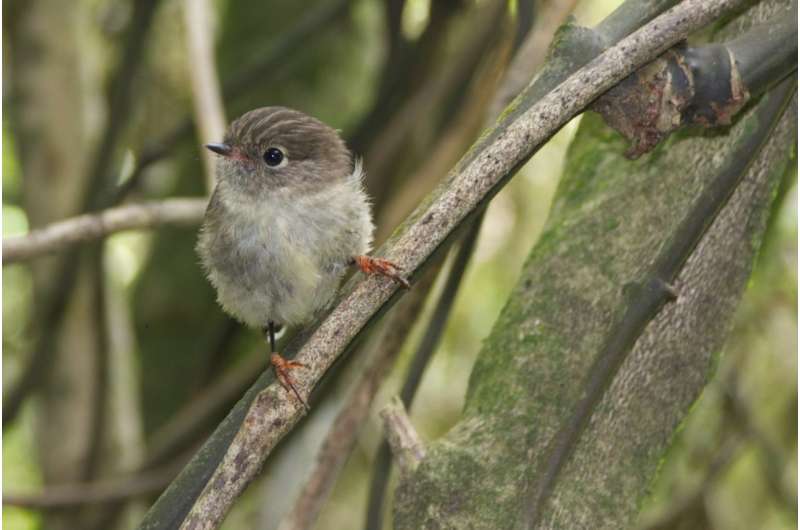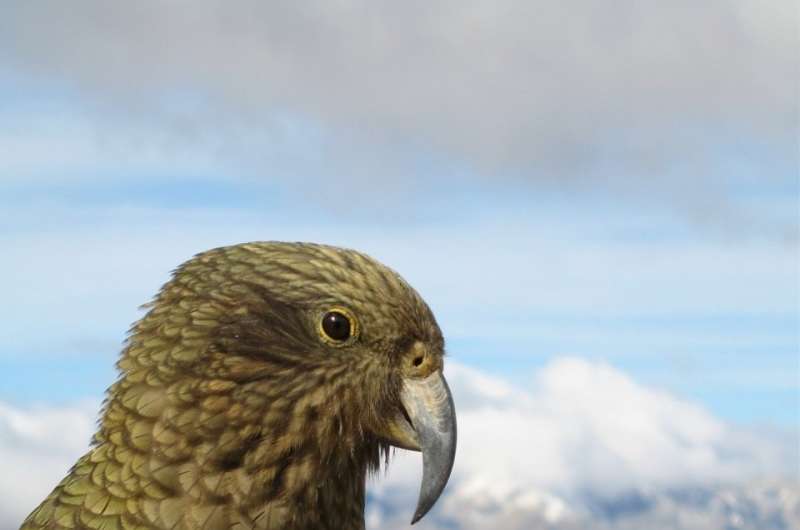August 1, 2018 report
Study confirms that island birds have bigger brains

A team of researchers from Sweden, Canada and Spain has found evidence suggesting that birds that live on islands tend to have bigger brains than their mainland cousins. In their paper published in the journal Nature Communications, the group describes their analysis of data on over 1800 bird species and what they found.
The researchers note that there has been anecdotal evidence suggesting that birds living on islands have bigger brains than similar birds on the mainland—and two studies carried out to discover if this were true. But both studies turned out to be flawed, which meant there was no real evidence backing up such claims. To learn more, the team searched databases that contained information on 11,554 bird specimens that included brain size data on 110 species living on islands, and 1,821 living on continents. Analysis of the data showed that birds living on islands did have larger brains (relative to body size) on average than continental birds. But this finding led them to the obvious question of whether living on an island caused larger brain growth or whether larger-brained birds were more likely to make their way to an island in the first place. To find the answer to this question, the team went back to the database. This time, they compared the birds by brains size, how closely related they were, and also, of course, where they lived. In so doing, they found that birds evolving over time on an island had bigger brains than their cousins who had stayed home. The researchers claim this suggests very strongly that island life has increased brain size in birds.

The researchers next wondered why island living might produce birds with bigger brains, and presumably, higher intelligence. They theorized that it seemed plausible that factors such as isolation, an inability to disperse, and a need to expand their niche might cause such a change. They note that isolation would result in a different life history and also would prevent the birds from moving elsewhere should conditions become rough on occasion. They also noted that island life might be more erratic than birds on the mainland experienced, forcing them to look for new ways to find food and otherwise survive. To visualize their theory, the group built a model that depicted birds living under such circumstances. The simulation showed the outcome they expected—the development of larger brains.
More information: Ferran Sayol et al. Predictable evolution towards larger brains in birds colonizing oceanic islands, Nature Communications (2018). DOI: 10.1038/s41467-018-05280-8
Abstract
Theory and evidence suggest that some selective pressures are more common on islands than in adjacent mainland habitats, leading evolution to follow predictable trends. The existence of predictable evolutionary trends has nonetheless been difficult to demonstrate, mainly because of the challenge of separating in situ evolution from sorting processes derived from colonization events. Here we use brain size measurements of >1900 avian species to reveal the existence of one such trend: increased brain size in island dwellers. Based on sister-taxa comparisons and phylogenetic ancestral trait estimations, we show that species living on islands have relatively larger brains than their mainland relatives and that these differences mainly reflect in situ evolution rather than varying colonization success. Our findings reinforce the view that in some instances evolution may be predictable, and yield insight into why some animals evolve larger brains despite substantial energetic and developmental costs.
Journal information: Nature Communications
© 2018 Phys.org




















